It was a boom for five years. With high profit margins, easy availability of iron ore and coal, and better logistics, Odisha became a hot seat for sponge iron industry in India during 2005-2010, leading to mushrooming of sponge iron units – 95 of them. However, a mining ban coupled with increasing iron ore prices and reducing margins has virtually reduced this industry to almost half today.
Most of the 60 standalone sponge iron units have a total debt of over Rs 500 crore, with a unit having an average bad loan between Rs 10-20 crore, says a sponge industry insider on condition of anonymity.
"Last year, a dozen of companies defaulted on corporate loan accounts and were declared as non-performing assets (NPAs) by banks," says a senior official from Bhushan Steel Plant. "In case of big units like ours, bad loans are piling up. The figure goes up in thousands of crores if you add up figures of all the 95 units," he adds.
It's an irony that in the era of Modi's Make-in-India, where domestic industry is supposed to grow, the industry which is providing employment to an estimated 50,000 people directly is shutting down.
In Odisha, sponge iron plants are divided into three clusters – Rourkela with 45 plants, Keonjhar with 25 plants and Jharsuguda/Sambalpur with 15 plants.
"There is no other option," says Gouri Shanker Agrawal, of Jay Iron and Steels Limited, which is a standalone sponge iron unit. "Profit margins are reducing. We can't run sponge iron factories till we get iron ore at a cheaper rate of around Rs 2,000 per tonne. The mining ban in a way had lead to cartelisation and we were hit the most," he adds.
His company, which used to buy raw materials from Rungta Mines is eagerly awaiting the mining by the company to be resumed.
Odisha Sponge Iron Manufacturers Association (OSIMA) says that when the units were set up, the loan was given at the interest rate of 12-14% and many units managed to repay them. But when the recession and mining ban started hitting the industry, they had to take loans again. "Out of the total cost of sponge iron, 60-70% goes to the landing cost of the raw material, while we have only 40-30% fund for operating our units. The problem started in 2010 when profits started reducing. In 2012, profit dropped to zero and in 2014, we were in debt."
Was the whole situation built up as a bid to wipe out small scale industry in the region?
Agrawal says, "During the visit of Arcelor's Mittal, we did hear that he had proposed to CM Naveen Patnaik that following the China model, India should phase out small scale industry and should have big efficient plants. But we don't suspect any such foul play."
The sponge iron industry in Odisha is mainly dependent on private mining – a reason for competitive prices as iron ore is an open market. "See how iron ore prices increased eight to nine times in ten years – from 2000 to 2010, because of private players," says OSIMA.
The government intervention came with the Odisha Mining Corporation (OMC) Limited deciding to sell 50% of its saleable iron ore stock and 30% of its salable chrome ore stock through e-auction. However, they were able to sell only 20-30% of their stocks.
The sponge iron manufacturers say that they can't buy from OMC because reserve prices are very high. We have been urging the company to reduce it to Rs 2,000 to Rs 2,100 per tonne as prices above it are unviable. They add that currently, sponge iron's selling price is around Rs 13,500 per tonne. OSIMA says, to add on to their woes is truckers association, which has monopoly in deciding the freight charges.
Industry pundits predict that the industry would see some respite with the iron ore mining, but the damage has been done and the industry has hit a dead-end. "Only a revival plan with strong boost of investment, infrastructure and market regulation can save the industry," said a Ficci official.
![submenu-img]() This singer left Air Force, sang at churches, became superstar; later his father killed him after...
This singer left Air Force, sang at churches, became superstar; later his father killed him after...![submenu-img]() Indian-origin man says Apple CEO Tim Cook pushed him...
Indian-origin man says Apple CEO Tim Cook pushed him...![submenu-img]() Anil Ambani’s Rs 96500000000 Reliance deal still waiting for green signal? IRDAI nod awaited as deadline nears
Anil Ambani’s Rs 96500000000 Reliance deal still waiting for green signal? IRDAI nod awaited as deadline nears![submenu-img]() Most popular Indian song ever on Spotify has 50 crore streams; it's not Besharam Rang, Pehle Bhi Main, Oo Antava, Naina
Most popular Indian song ever on Spotify has 50 crore streams; it's not Besharam Rang, Pehle Bhi Main, Oo Antava, Naina![submenu-img]() Did Diljit Dosanjh cut his hair for Amar Singh Chamkila? Imtiaz Ali reveals ‘he managed to…’
Did Diljit Dosanjh cut his hair for Amar Singh Chamkila? Imtiaz Ali reveals ‘he managed to…’ ![submenu-img]() DNA Verified: Is CAA an anti-Muslim law? Centre terms news report as 'misleading'
DNA Verified: Is CAA an anti-Muslim law? Centre terms news report as 'misleading'![submenu-img]() DNA Verified: Lok Sabha Elections 2024 to be held on April 19? Know truth behind viral message
DNA Verified: Lok Sabha Elections 2024 to be held on April 19? Know truth behind viral message![submenu-img]() DNA Verified: Modi govt giving students free laptops under 'One Student One Laptop' scheme? Know truth here
DNA Verified: Modi govt giving students free laptops under 'One Student One Laptop' scheme? Know truth here![submenu-img]() DNA Verified: Shah Rukh Khan denies reports of his role in release of India's naval officers from Qatar
DNA Verified: Shah Rukh Khan denies reports of his role in release of India's naval officers from Qatar![submenu-img]() DNA Verified: Is govt providing Rs 1.6 lakh benefit to girls under PM Ladli Laxmi Yojana? Know truth
DNA Verified: Is govt providing Rs 1.6 lakh benefit to girls under PM Ladli Laxmi Yojana? Know truth![submenu-img]() Alia Bhatt wears elegant saree made by 163 people over 1965 hours to Met Gala 2024, fans call her ‘princess Jasmine’
Alia Bhatt wears elegant saree made by 163 people over 1965 hours to Met Gala 2024, fans call her ‘princess Jasmine’![submenu-img]() Jr NTR-Lakshmi Pranathi's 13th wedding anniversary: Here's how strangers became soulmates
Jr NTR-Lakshmi Pranathi's 13th wedding anniversary: Here's how strangers became soulmates![submenu-img]() Streaming This Week: Heeramandi, Shaitaan, Manjummel Boys, latest OTT releases to binge-watch
Streaming This Week: Heeramandi, Shaitaan, Manjummel Boys, latest OTT releases to binge-watch![submenu-img]() Remember Ayesha Kapur? Michelle from Black, here's how actress, nutrition coach, entrepreneur looks after 19 years
Remember Ayesha Kapur? Michelle from Black, here's how actress, nutrition coach, entrepreneur looks after 19 years![submenu-img]() Remember Heyy Babyy's cute 'Angel' Juanna Sanghvi? 20 year-old looks unrecognisable now, fans say 'her comeback will...'
Remember Heyy Babyy's cute 'Angel' Juanna Sanghvi? 20 year-old looks unrecognisable now, fans say 'her comeback will...'![submenu-img]() DNA Explainer: Why Harvey Weinstein's rape conviction was overturned, will beleaguered Hollywood mogul get out of jail?
DNA Explainer: Why Harvey Weinstein's rape conviction was overturned, will beleaguered Hollywood mogul get out of jail?![submenu-img]() What is inheritance tax?
What is inheritance tax?![submenu-img]() DNA Explainer: What is cloud seeding which is blamed for wreaking havoc in Dubai?
DNA Explainer: What is cloud seeding which is blamed for wreaking havoc in Dubai?![submenu-img]() DNA Explainer: What is Israel's Arrow-3 defence system used to intercept Iran's missile attack?
DNA Explainer: What is Israel's Arrow-3 defence system used to intercept Iran's missile attack?![submenu-img]() DNA Explainer: How Iranian projectiles failed to breach iron-clad Israeli air defence
DNA Explainer: How Iranian projectiles failed to breach iron-clad Israeli air defence![submenu-img]() This singer left Air Force, sang at churches, became superstar; later his father killed him after...
This singer left Air Force, sang at churches, became superstar; later his father killed him after...![submenu-img]() Most popular Indian song ever on Spotify has 50 crore streams; it's not Besharam Rang, Pehle Bhi Main, Oo Antava, Naina
Most popular Indian song ever on Spotify has 50 crore streams; it's not Besharam Rang, Pehle Bhi Main, Oo Antava, Naina![submenu-img]() Did Diljit Dosanjh cut his hair for Amar Singh Chamkila? Imtiaz Ali reveals ‘he managed to…’
Did Diljit Dosanjh cut his hair for Amar Singh Chamkila? Imtiaz Ali reveals ‘he managed to…’ ![submenu-img]() Watch: Arti Singh gets grand welcome at husband Dipak's house with fairy lights and fireworks, video goes viral
Watch: Arti Singh gets grand welcome at husband Dipak's house with fairy lights and fireworks, video goes viral![submenu-img]() Meet actress, who belongs to family of superstars, quit films after 19 flops, no single hit in 9 years; is still worth…
Meet actress, who belongs to family of superstars, quit films after 19 flops, no single hit in 9 years; is still worth…![submenu-img]() IPL 2024: Suryakumar Yadav's century power MI to 7-wicket win over SRH
IPL 2024: Suryakumar Yadav's century power MI to 7-wicket win over SRH![submenu-img]() DC vs RR, IPL 2024: Predicted playing XI, live streaming details, weather and pitch report
DC vs RR, IPL 2024: Predicted playing XI, live streaming details, weather and pitch report![submenu-img]() Watch: Team India’s new jersey for T20 World Cup 2024 unveiled
Watch: Team India’s new jersey for T20 World Cup 2024 unveiled![submenu-img]() DC vs RR IPL 2024 Dream11 prediction: Fantasy cricket tips for Delhi Capitals vs Rajasthan Royals
DC vs RR IPL 2024 Dream11 prediction: Fantasy cricket tips for Delhi Capitals vs Rajasthan Royals![submenu-img]() IPL 2024: Kolkata Knight Riders take top spot after 98 runs win over Lucknow Super Giants
IPL 2024: Kolkata Knight Riders take top spot after 98 runs win over Lucknow Super Giants![submenu-img]() Indian-origin man says Apple CEO Tim Cook pushed him...
Indian-origin man says Apple CEO Tim Cook pushed him...![submenu-img]() Meet man whose salary was only Rs 83 but his net worth grew by Rs 7010577000000 in 2023, he is Mukesh Ambani's...
Meet man whose salary was only Rs 83 but his net worth grew by Rs 7010577000000 in 2023, he is Mukesh Ambani's...![submenu-img]() Job applicant offers to pay Rs 40000 to Bengaluru startup founder, here's what happened next
Job applicant offers to pay Rs 40000 to Bengaluru startup founder, here's what happened next![submenu-img]() Viral video: Family fearlessly conducts puja with live black cobra, internet reacts
Viral video: Family fearlessly conducts puja with live black cobra, internet reacts![submenu-img]() Woman demands Rs 50 lakh after receiving chicken instead of paneer
Woman demands Rs 50 lakh after receiving chicken instead of paneer


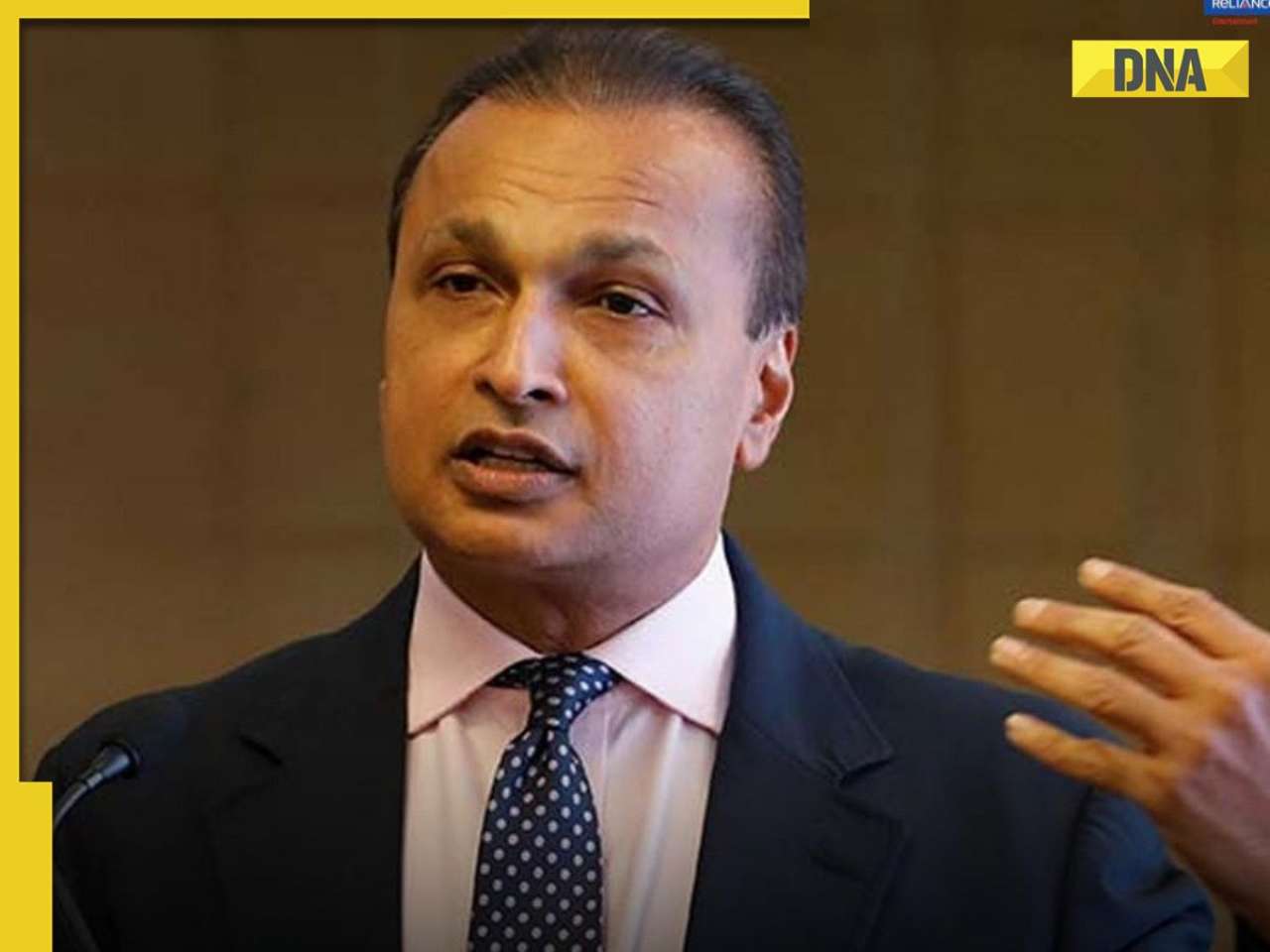

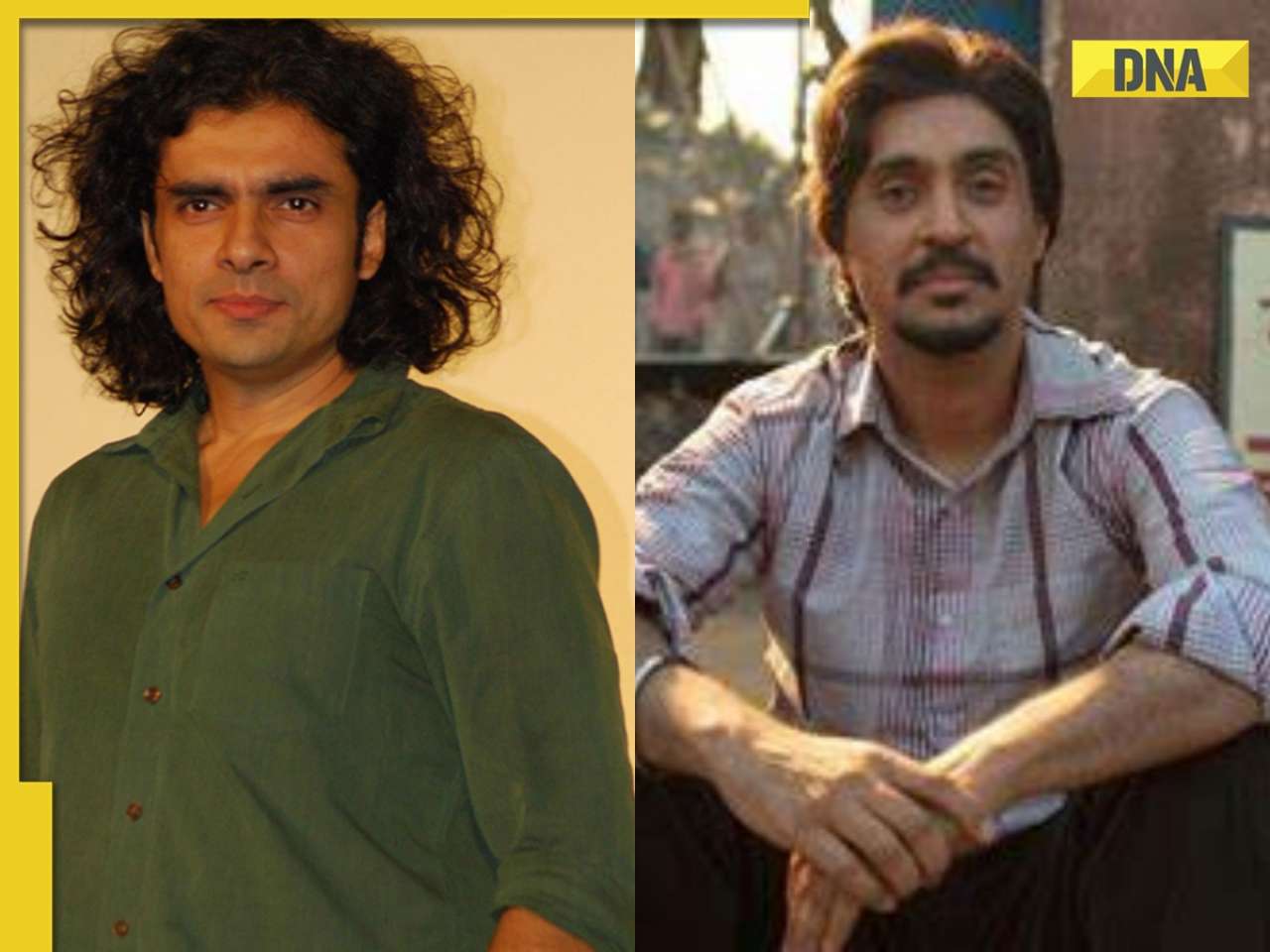
























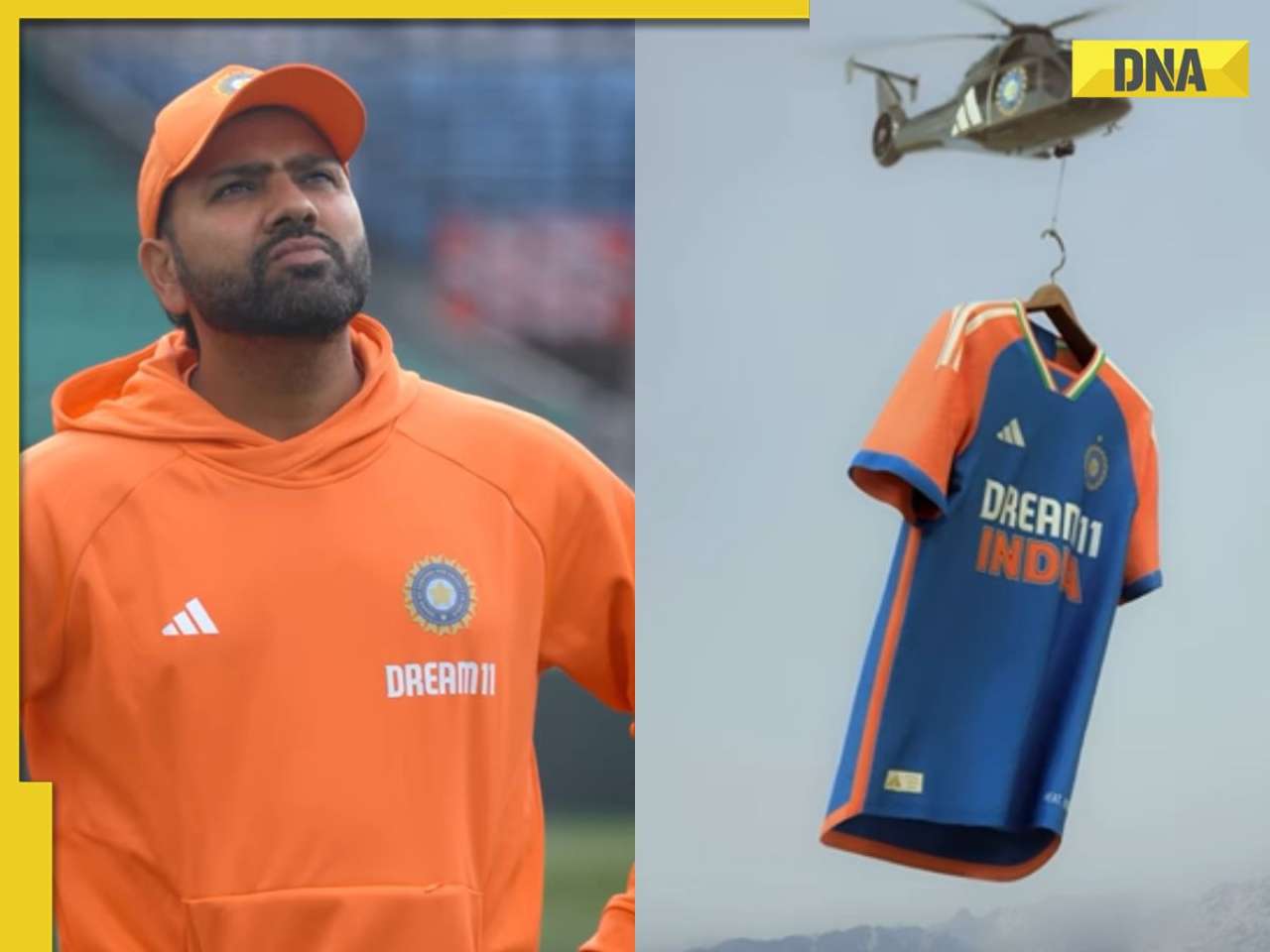







)


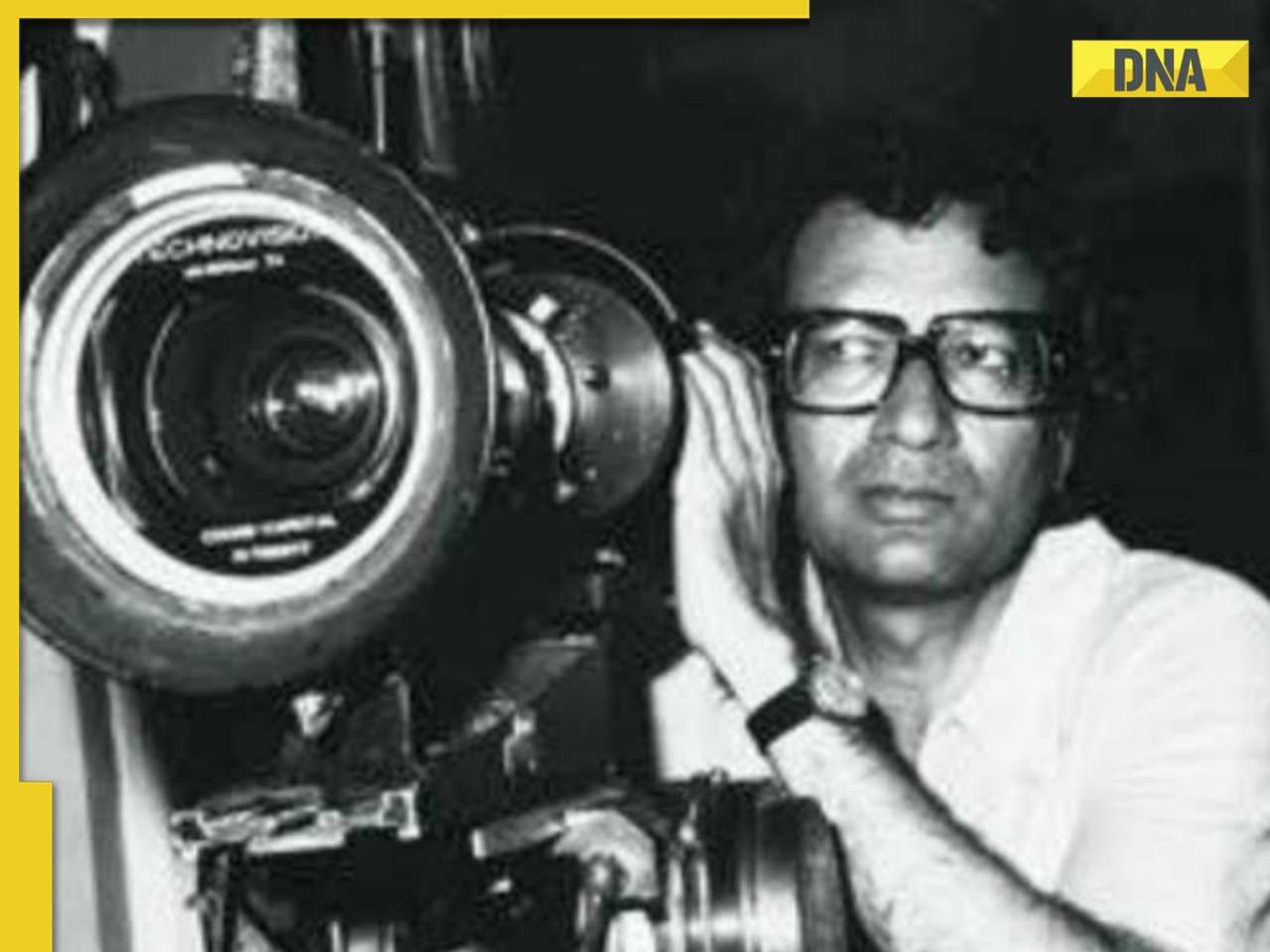

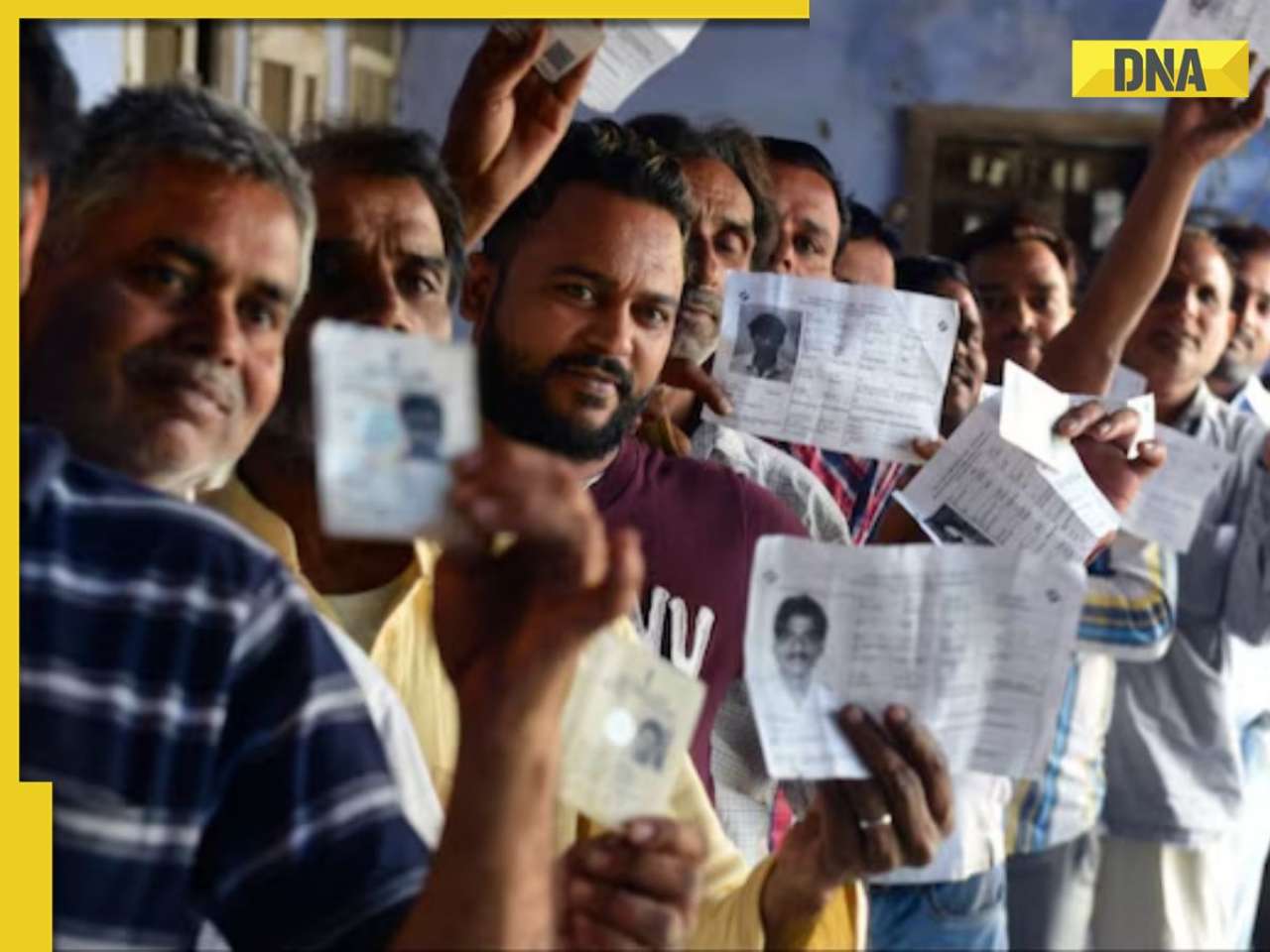




)
)
)
)
)
)